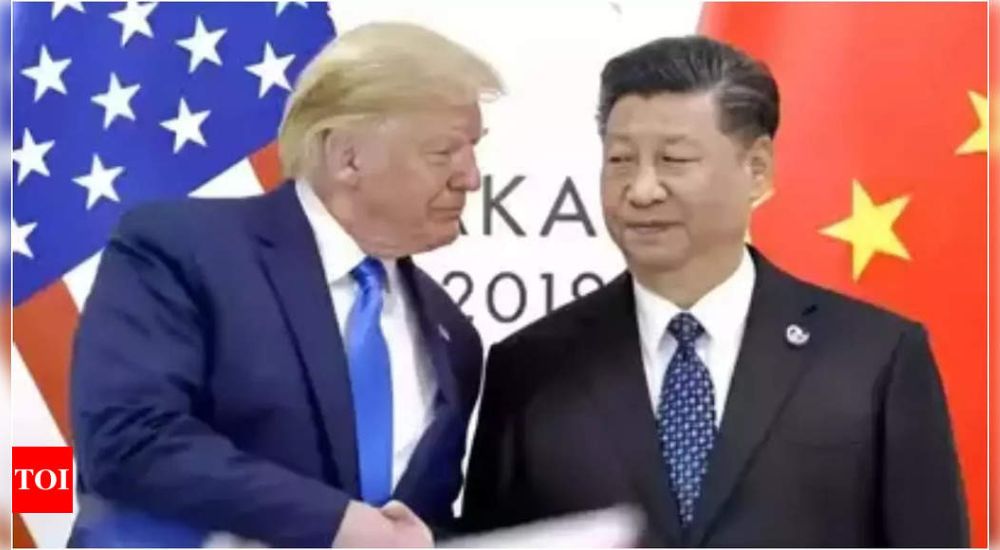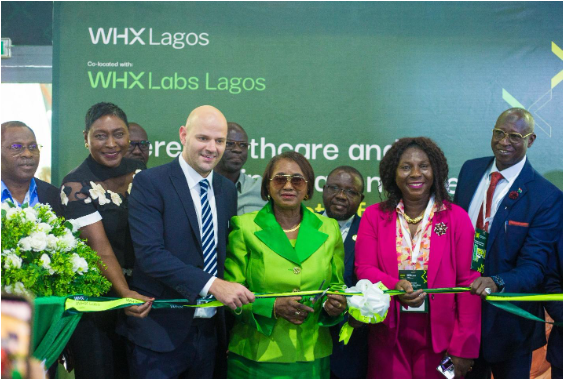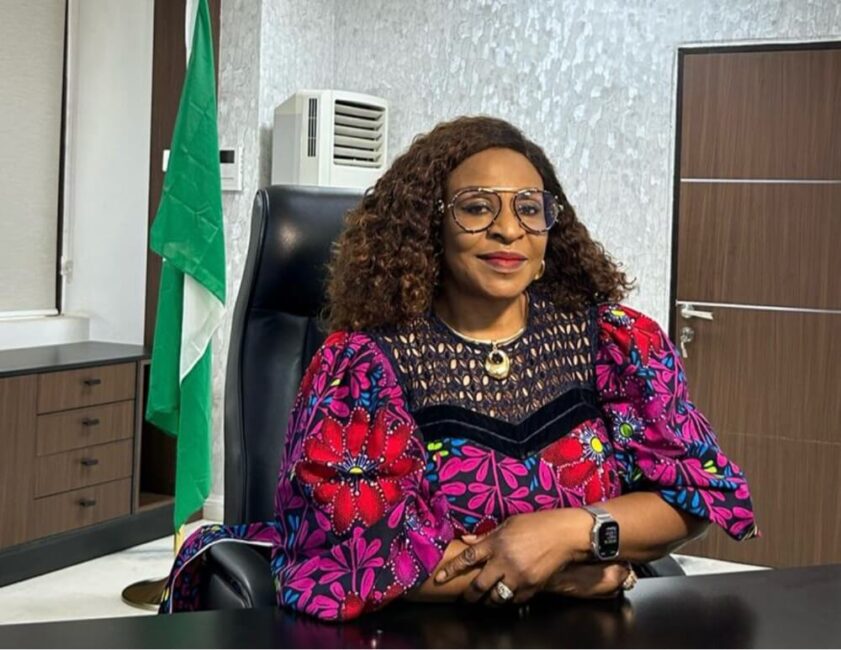US Tariff Policy Will Jeopardize Nigeria’s FX Inflows, Key Exports – NACCIMA

… As Fitch Predicts Stable Credit Outlook For Africa Despite Aid Freeze, Trade Tensions
The Nigerian Association of Chambers of Commerce, Industry, Mines, and Agriculture (NACCIMA) has raised alarm over the far-reaching implications of the United States’ newly imposed 14 per cent tariff on Nigerian exports, warning that the measure could significantly reduce foreign exchange (FX) inflows and destabilise key sectors of the Nigerian economy.
Speaking at a forum in Lagos, NACCIMA President Dele Kelvin Oye described the tariff hike announced under President Donald Trump’s administration as a major threat to Nigeria’s economic stability and trade competitiveness.
He emphasised that the development could lead to reduced demand for critical Nigerian exports, including crude oil, liquefied natural gas, and agricultural commodities sectors that serve as major sources of the country’s FX earnings.
“The ripple effects of reduced demand could precipitate job losses, economic instability, and a decline in vital foreign exchange inflows, particularly for our non-oil sectors,” Oye warned.
Oye also expressed concern that the tariff policy marks a departure from cooperative, rules-based global trade practices under the World Trade Organisation (WTO) and signals a shift toward more unilateral and protectionist measures.
He noted that such a move disrupts established global supply chains and undermines Nigeria’s competitive position in international trade.
“This transformation not only disrupts global markets and supply chains but also poses an acute threat to our competitive standing in international trade,” he said.
Beyond the immediate effects of the tariff, Oye highlighted broader economic concerns stemming from evolving U.S. foreign policy.
He cited the recent $51m cut from the United States Development Fund, which has traditionally supported entrepreneurship and innovation across several African nations, including Nigeria and Kenya.
According to him, the reduction in funding threatens the viability of small and medium-sized enterprises (SMEs), which rely heavily on such grants to access capital, drive innovation, and expand their operations.
“The grants previously allotted to our SMEs are critical for nurturing innovation and entrepreneurship within our local economies,” Oye said, lamenting that many Nigerian SMEs now face added hurdles in scaling their businesses.
Despite these challenges, the NACCIMA president struck a hopeful tone, calling on Nigerian policymakers and business leaders to seize the opportunity to deepen regional trade ties under the African Continental Free Trade Area (AfCFTA).
He advocated for enhanced intra-African trade and stronger regional value chains as a buffer against global trade shocks.
“Together, we can create a more integrated and prosperous African market,” he said, while urging the government to expand trade partnerships beyond traditional markets like the United States.
In his view, Nigeria must diversify its trade relations by engaging more deeply with emerging economies such as China, India, and Brazil.
He also emphasised the need for strategic investment in transport and logistics infrastructure, which he described as critical to improving market access, reducing trade costs, and attracting foreign direct investment (FDI).
Furthermore, Oye called for increased investment in human capital through vocational education and workforce development, stressing that Nigeria’s greatest asset lies in its people.
“We must emphasise vocational training and education to cultivate a skilled workforce ready to meet the demands of future industries,” he said.
As global trade dynamics continue to shift, NACCIMA’s message to stakeholders is clear: Nigeria must rethink its export strategy, invest in resilience, and position itself to navigate an increasingly complex international economic environment.
Meanwhile, global credit rating agency Fitch Ratings has said that the ongoing freeze on U.S. foreign aid and rising global trade tensions, including the imposition of tariffs, are unlikely to lead to widespread credit downgrades across Africa.
The agency noted that the region’s limited integration into global value chains and recent domestic reforms are helping to mitigate the risks.
Head of the Middle East and Africa division at Fitch’s Sovereign Ratings Group, Paul Gamble, stated virtually on Thursday that while the freeze on funding from the United States Agency for International Development (USAID) under President Donald Trump’s executive order has disrupted support to some African nations, the broader macroeconomic impact remains manageable for most.
“The reforms that we’ve seen really put the region in a better position to absorb some of these shocks,” Gamble said, noting that the impact for the ratings looks manageable.
Fitch emphasised that Africa’s export profile, which is heavily commodity-based and less embedded in global manufacturing supply chains compared to Asia, provides a buffer against direct fallout from tariffs and trade realignments.
Still, some countries are more exposed than others. Sub-Saharan Africa has historically been a key beneficiary of U.S. foreign assistance, and nations such as Ethiopia, Mozambique, Uganda, and Lesotho could experience heightened fiscal pressure due to the abrupt halt in USAID disbursements. Ethiopia, for example, received U.S. assistance equivalent to around 80 per cent of its foreign exchange reserves.
Despite these vulnerabilities, Fitch maintains a positive credit outlook for countries such as Nigeria and the Seychelles. Gamble credited this to ongoing economic and structural reforms, including measures aimed at improving public finance management, exchange rate policy, and investment frameworks.
In contrast, countries like South Africa, Namibia, and Ivory Coast were said to be relatively insulated from the current geopolitical disruptions.
Their diversified economies and more resilient institutions position them better to weather volatility in foreign funding and global trade.
Fitch also highlighted the potential long-term shift in Africa’s geopolitical relevance. Senior Director at Fitch, Arnaud Louis, remarked that African-owned multilateral development banks may play a greater role in addressing financing gaps as U.S. support recedes.
Meanwhile, Gamble pointed to a strategic pivot by Washington, noting an increasing U.S. interest in Africa’s critical minerals.
He warned that this could turn Africa into a new arena for strategic rivalry between the U.S. and China, especially in countries like the Democratic Republic of Congo (DRC), which holds vast reserves of cobalt and rare earth minerals used in electric vehicles and electronics.
“Africa will be a playing field for U.S.-China tensions,” Gamble said, adding that the U.S. interest is becoming more opportunistic and transactional, focusing on access to minerals and rare earths rather than broad-based development.
The Fitch analysts also cautioned that the region continues to face growing insurgent violence, adding another layer of complexity to economic management and international cooperation in many African countries.
While risks remain, Fitch concluded that Africa’s sovereign credit landscape remains largely stable, supported by reforms, diversification, and the increasing role of regional financial institutions.
US Tariff Policy Will Jeopardize Nigeria’s FX Inflows, Key Exports – NACCIMA is first published on The Whistler Newspaper




